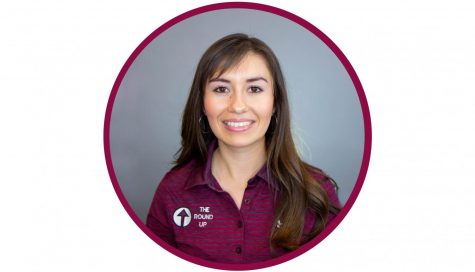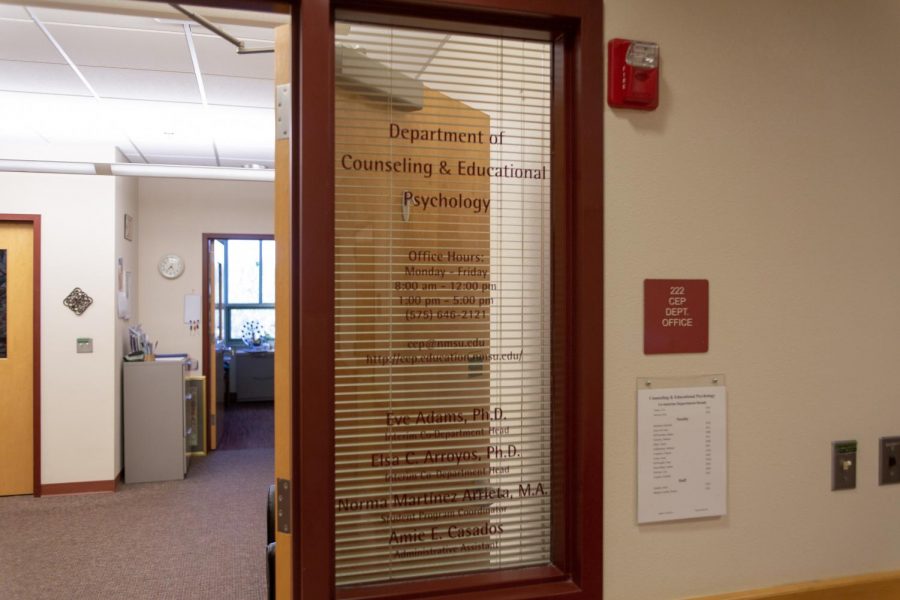NMSU programs address mental health in community
The CEP clinic gives students the opportunity to gain hands-on experience.
In the United States, 19.1%– 47.6 million adults– experienced mental illness in 2018, according to information from the National Alliance on Mental Illness. Of that number, only 43.3% of adults received treatment. Based on a national survey conducted in 2018 by the Substance Abuse and Mental Health Services Administration, there was a perceived unmet need for mental health services of 14,215,000 among adults 18 and older.
World Mental Health Day is celebrated on Oct. 10 this year, in an effort to raise awareness of mental health issues as well as break down the social stigma it often carries.
“I think we’re still kind of shrouded by that shadow of, ‘oh, well if you go to see a psychologist or you go see a counselor, there’s something wrong with you, or you’re crazy,’” Jazmin Gonzalez, a doctoral student in the Counseling and Educational Psychology department, said. “It’s something that we still need to work on as a field, as a profession, you know, normalizing mental health. It’s not any different than going to a doctor for diabetes care or any sort of kind of routine.”
New Mexico State University’s CEP department is preparing their students to address these issues through their commitment to social justice and ensuring their students receive hands-on training before they graduate. The department is home to The NMSU Community Mental Health and Wellness Clinic, located in O’Donnell Hall room 047. It serves as a teaching clinic where students in their programs gain experience counseling people during their studies.
Tracie Hitter, assistant professor in the CEP department and a licensed psychologist, oversees the wellness clinic. She said it has been operating for at least 20 years. Hitter said the clinic has historically been open to the community, but more recently the clinic’s patients are undergraduate students who have been encouraged to visit the clinic through their classes, often for extra credit. The services are free and those who seek treatment do so on a volunteer basis.
“They have to come in for eight sessions, usually eight sessions, and they work on things like relationship issues, maybe test anxiety, like mild depression or mild anxiety, family issues, identity exploration, career exploration, those kinds of things,” Hitter said.
Hitter said the number of clients seen in the clinic fluctuate, but there were 163 people in 2018. She said she is expecting about 100 to 115 people for 2019.
Gonzalez said she has been involved with the clinic as a counselor and now as a supervisor. She is also involved in a research study through the clinic. This year, she said there are six doctoral students and a combination of about 20 school psychology students and clinical mental health master’s students who will be counselors through the clinic.
The sessions are usually 50 minutes long and are recorded for educational use by the student counselor and their supervisor.
Hitter explained all patients must first complete a screening. If they are found to be dealing with more serious concerns, they are referred to the Aggie Health and Wellness Center.
“Our clinic can’t handle emergencies,” Hitter said. “And the student’s aren’t there like 40 hours a week, if somebody has like a crisis.”
Hitter said about 9% of the people they see are referred to the Health and Wellness Center each year. That number fluctuates depending on “stressors” students face.
Lori McKee, executive director of the Health and Wellness Center, said the center and the CEP department work closely together to see to the needs of students on campus.
“We work collaboratively with them because we also refer patients to them,” McKee said. “We have a higher level of care here, because all of my professional staff are licensed either counselors or psychologists.”
The center also takes in about four graduate students from the CEP department as interns each semester. They are overseen by professionals employed by the center, and like the clinic in the CEP department, are able to get hands-on experience working with patients.
“New Mexico in general has a very high shortage of mental health providers. And so it’s really important for the university and for our students that we have the resources on campus, because the resources in the community are very tight and very scarce.”
Gonzalez said she came to NMSU because she liked the values the department held. She also said she enjoys both the counseling and research aspects of her field, and the department allowed her to be involved in both.
“Definitely there’s a social justice component that I think is very salient through all our training, you know, from the moment that we get here through, you know, time that we finish,” Gonzalez said. “Both embracing that conscious awareness of, you know, the need for mental health service providers in these areas, but also building it into our training sequence, I think it’s really a positive thing in this program.”

Leah Romero is a native Las Crucen entering her fourth year at NMSU where she is pursuing a bachelor’s degree in Journalism and Media Studies along with...

